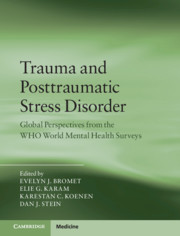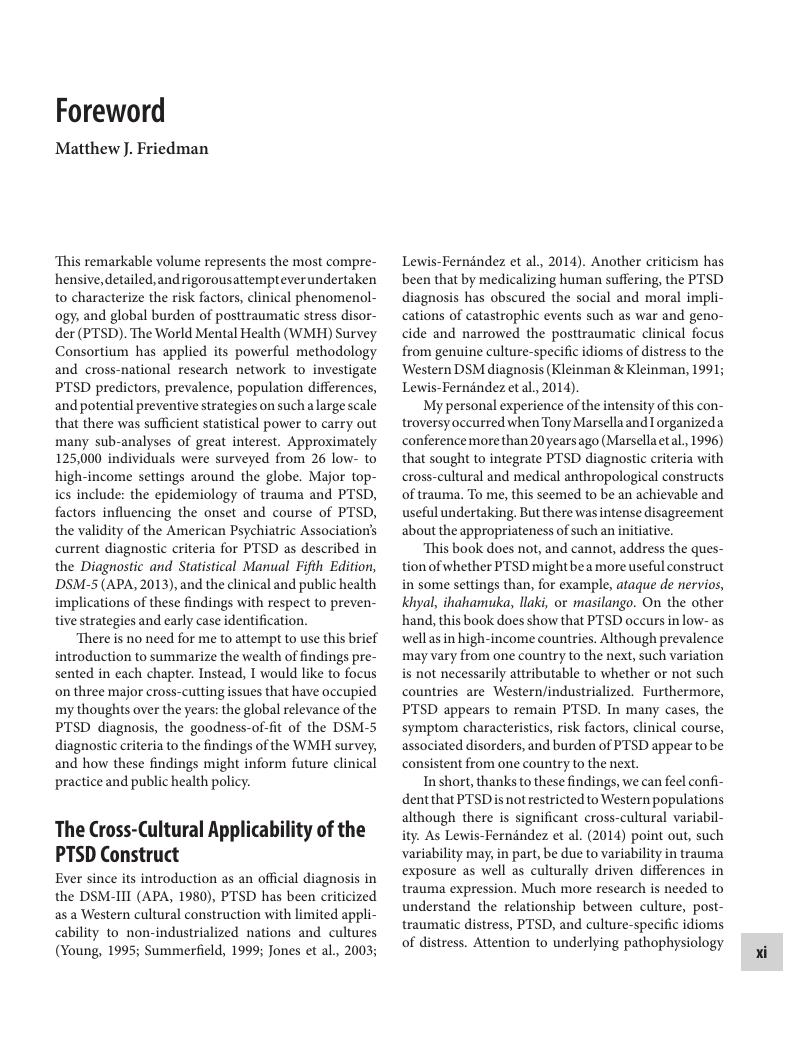 Trauma and Posttraumatic Stress Disorder
Trauma and Posttraumatic Stress Disorder Book contents
- Trauma and Posttraumatic Stress Disorder
- Trauma and Posttraumatic Stress Disorder
- Copyright page
- Contents
- Contributors
- Foreword
- Acknowledgments
- Section 1 Introduction
- Section 2 Epidemiology of Trauma Exposure
- Section 3 Epidemiology of Posttraumatic Stress Disorder
- Section 4 Factors Influencing the Onset and Course of Posttraumatic Stress Disorder
- Section 5 Dissecting the Clinical Picture
- Section 6 Conclusions and Future Directions
- Index
- References
Foreword
Published online by Cambridge University Press: 26 July 2018
- Trauma and Posttraumatic Stress Disorder
- Trauma and Posttraumatic Stress Disorder
- Copyright page
- Contents
- Contributors
- Foreword
- Acknowledgments
- Section 1 Introduction
- Section 2 Epidemiology of Trauma Exposure
- Section 3 Epidemiology of Posttraumatic Stress Disorder
- Section 4 Factors Influencing the Onset and Course of Posttraumatic Stress Disorder
- Section 5 Dissecting the Clinical Picture
- Section 6 Conclusions and Future Directions
- Index
- References
Summary

- Type
- Chapter
- Information
- Trauma and Posttraumatic Stress DisorderGlobal Perspectives from the WHO World Mental Health Surveys, pp. xi - xivPublisher: Cambridge University PressPrint publication year: 2018
